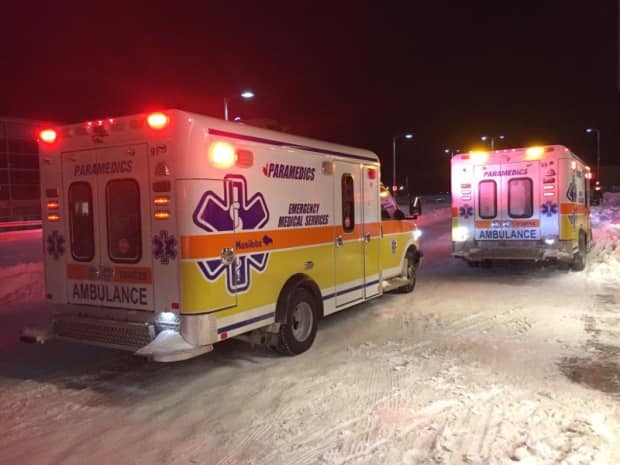Manitoba family told to cover cost for bringing home body of woman who died after hospital transfer

A Manitoba woman is angry with the province after she was told she'd be left to cover the cost to transfer the body of her late mother — who died after she was moved from her home community to free up a hospital bed for someone else.
Patricia Fosty was left scrambling on New Year's Day when her 84-year-old mother, Irma Rougeau, died at Morris General Hospital, about 50 kilometres south of Winnipeg — and Fosty was told it was up to her to bring her mother home to Winnipeg.
"I don't think the government should only pay if you get out alive," she said in disbelief.
"You transferred her outside her region. Why should we be on the hook for that?"
The person on the phone was apologetic, Fosty remembers.
"Those poor nurses are going, 'I'm sorry, but you're going to have to pay.' They felt horrible about it," said Fosty, who lives in Zhoda, in southeastern Manitoba.
She says she remained composed in the moment, "but, I mean, I could have been bawling my eyes out, not able to think straight — and I probably would have agreed to anything in that moment because we're talking about my mom's body and her care."
Shared Health, which oversees health-care delivery in the province, is apologizing and says Fosty was misinformed.
Its policy is to have the health-care facility cover transfer costs, which typically happens after a funeral home identified by the family handles transportation, Shared Health says.

Patient transfers are happening with increasing frequency in Manitoba, as health-care facilities make room for the growing number of COVID-19 patients.
Shared Health says since October, it has transferred 159 people from one regional health authority to another, including 12 patients in the last week.
Family will be reimbursed: Shared Health
Each patient who could be transferred receives a memo that says "transportation between facilities will not result in any personal cost to you."
It states a transferred patient, once they can be safely discharged, will be informed of their options and provided "appropriate resources to support a safe transition." The document doesn't say what happens if a patient dies.

After Rogueau's death, a decision had to be made quickly because the Morris hospital could not keep her remains.
A funeral home in Winnipeg said it could bring Rougeau home, but it would cost Fosty more than their prearranged agreement because the trip to pick up her body would be longer than expected.
The home decided on its own to waive the additional charge.
"The funeral home, I'm very happy to say, conducted themselves in an ethical manner," Fosty said.
She doesn't feel the same way about Shared Health or the provincial government.
In a statement, Shared Health extended its condolences to Fosty for her loss, "as well as our sympathies for the added stress this unfortunate incident caused them."
A Shared Health spokesperson later confirmed that an official spoke with the family on Thursday, after Fosty talked to CBC News. The health organization is now offering to reimburse her.
But Fosty says she chose to speak out because she doesn't want other grieving families to endure the same stress her family did.
She also approached the Opposition NDP with her story, after she didn't get a response from the government.
NDP Leader Wab Kinew said the fact the family was left to fend for themselves, hours after the death of a loved one, shows "a callous indifference on the part of the government."
"To see the way this family has been impacted in not only losing a loved one, but then having to have the additional challenges put up, I think really highlights the lack of dignity and the lack of humanity in this patient transfer policy," he said.
Trish Rawsthorne, a long-time advocate for seniors, said hospital transfers have been devastating to families and people's mental health.
"As a family member, I would be really, really upset."
Robbed of 'a more gentle passing'
Fosty is also frustrated by the events leading up to her mother's transfer to Morris on Dec. 1.
She was initially told she could refuse her mother's transfer, but was later told it would happen regardless of her wishes, unless she took her mother out of Seven Oaks General Hospital in Winnipeg within 18 hours.
Fosty says if she had been given a few days' notice of the transfer, she would have arranged for private home care instead. Her mother had a number of health issues and her condition deteriorated in her last few weeks, she says.
The recent experiences have distracted from the many pleasant memories she has of her mother, who loved music, art and being with her family, Fosty said.
"In her last moments, we don't even have a chance to make it better by not letting her transfer [hospitals], by maybe getting her care where her family and her friends could have been around and supported her," Fosty said, fighting back tears.
"I don't blame myself, but it would have been nice to make it so much easier for her and, consequently, for us.
"But we were robbed. We were robbed of an opportunity to give her a more gentle passing, and a more gentle end of life."

